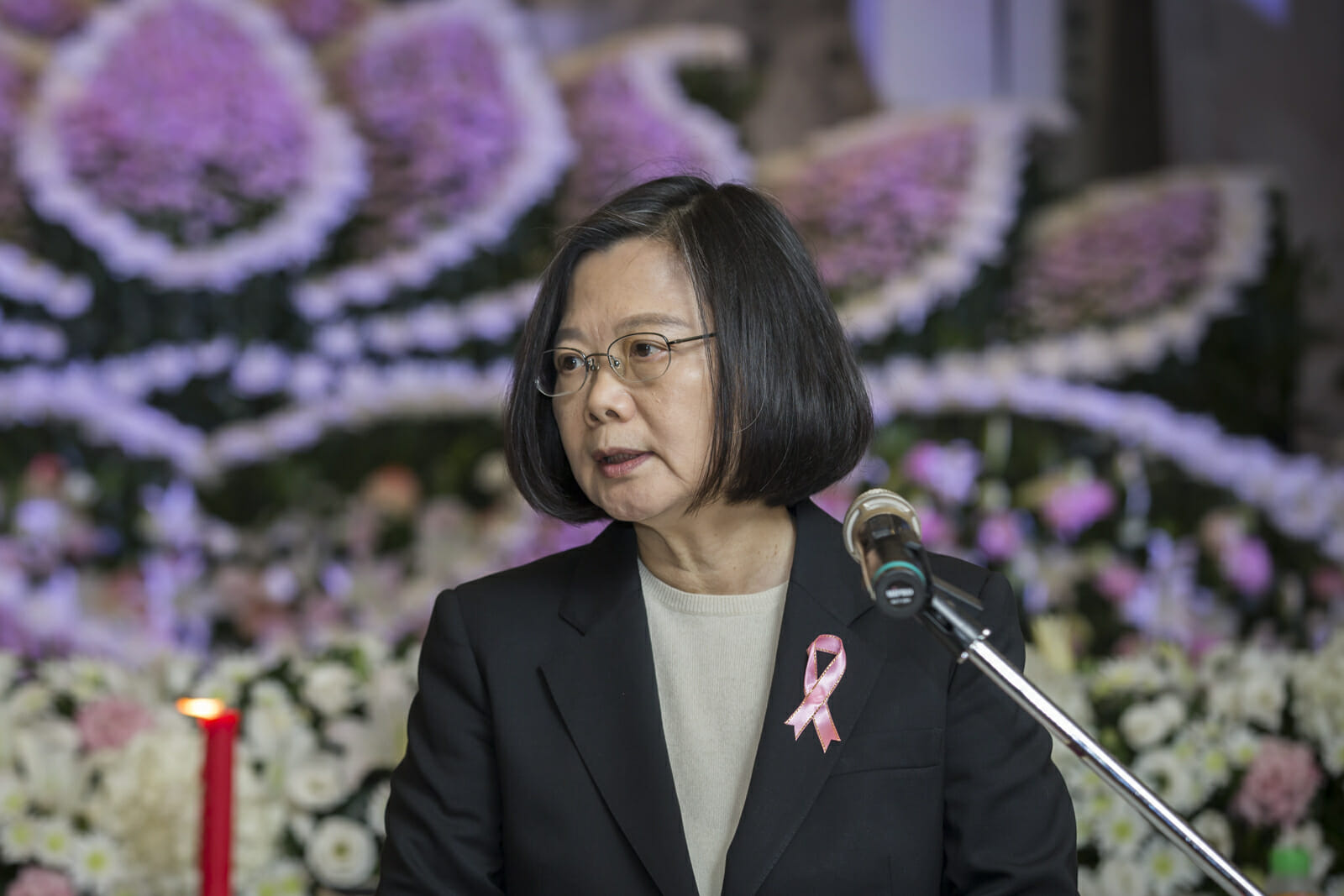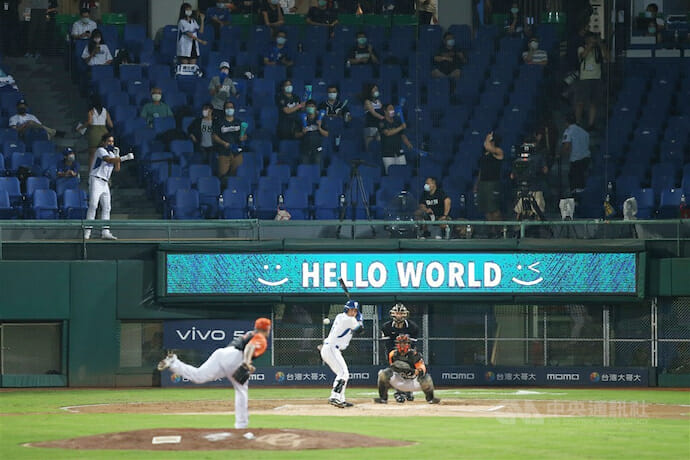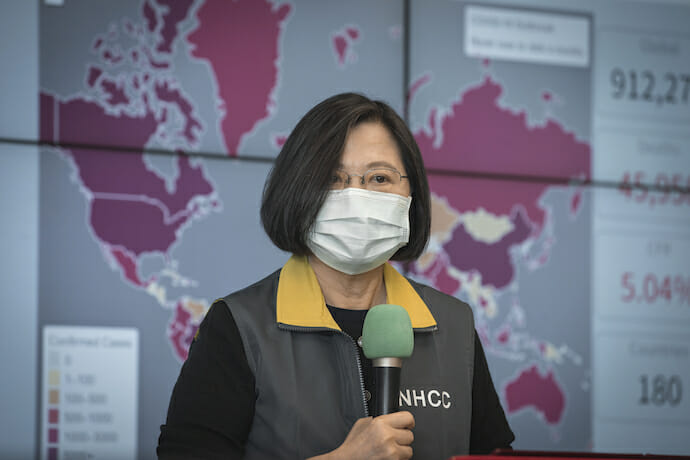
Taiwan is a Victim of Global COVID-19 Politics
In recent months, the world has applauded Taiwan for its handling of the COVID-19 pandemic. On Friday, May 8th at a Center for Strategic and International Studies virtual event, Taiwan’s Vice Premier Chen Chi-mai reported that at least 80% of the 440 people who have contracted the highly-infectious disease have since recovered, and human-to-human transmission has not occurred for 26 consecutive days. For sports enthusiasts, it’s worth noting that on May 8th, Taiwan’s Chinese Professional Baseball League became the first national baseball league to resume games with up to 1,000 fans in attendance since the World Health Organization (WHO) declared COVID-19 a pandemic on March 11th.

Now, with that being said, as the World Health Assembly approaches, many have wondered whether Taiwan—left out of past Assemblies—will be included in this year’s COVID-19-focused meeting. Countries such as the United States, New Zealand, Australia, Canada, and Germany have called for Taiwan’s inclusion as an observer. Unfortunately for the de-facto nation, the WHO announced on May 11th that Taiwan cannot join this year’s assembly. According to the WHO’s lawyer, Steven Solomon, Tedros Adhanom, the Director-General, does not possess the legal authority to authorize such a request, unless WHO member-states support such action. According to Solomon, “instead of clear support, there are divergent views among member states and no basis therefore—no mandate—for the DG to extend an invitation.”
It goes without saying that the pushback against Taiwan’s participation has revealed the complex political questions attached to Taiwan and China’s relationship, as well as the continued global impact of cross-strait relations. Taiwan has attended the WHA as an “observer” since 2009, when it was first permitted to “observe” under the name “Chinese Taipei.” (Brookings reports that the issue of Taiwan’s inclusion has been raised since 2003, when China’s management of SARS garnered accusations of “mishandling.” As Brookings put it, “China’s secrecy and recalcitrance toward the WHO and other states and its intransigent opposition to direct WHO-Taiwan cooperation fostered an unusually close alignment between Taiwan and the world.”)
In 2016, the United States and the EU fought for Taiwan’s inclusion when, as The Diplomat puts it, “it looked like Taiwan would not be invited…as Beijing wanted to send a not-so-subtle signal to the incoming administration of president-elect Tsai Ing-wen of the DPP.” The 2016 World Health Assembly saw Taiwan attend as an “observer” again, but this time with some added caveats: acceptance of UN Resolution 2758 as a prerequisite for attendance, as well as what The Diplomat calls “accordance with the ‘One China’ principle.”

With this in mind, let us return to the present, as the COVID-19 crisis begins to strain China’s relationship with the rest of the world—including Taiwan. As Brookings scholar Ryan Hass puts it, “This crisis…could lead to an intensification of cross-strait tensions. Chinese authorities might nurture grievances about Taiwan’s early decision to halt shipments of medical supplies and its public references to COVID-19 as the ‘Wuhan virus.’ Taiwan’s leaders also have no shortage of complaints about China’s handling of cross-strait relations during the crisis, foremost among them Beijing’s prioritization on diplomatic point-scoring at the World Health Organization over considerations for individuals’ health and safety in Taiwan.”
Many Americans looking to support Taiwan, amid resistance from Beijing, argue that Taiwan should be allotted a larger role in global health discussions, including members of Trump’s cabinet. On April 27th, HHS Secretary Alex Azar made a rare move to showcase the U.S.’ public support for Taiwan’s pandemic containment efforts by holding a virtual meeting with his Taiwanese counterpart, Chen Shih-Chung. A move most likely perceived as an affront to the Chinese government. At a press briefing on May 6th, Secretary of State Mike Pompeo urged Tedros Adhanom “to invite Taiwan to observe this month’s WHA, as he has the power to do, and as his predecessors have done on multiple occasions.” In response to his remarks, Taiwan’s Minister of Foreign Affairs, Joseph Wu, posted a tweet through his office’s Twitter account, expressing his gratitude for supporting Taiwan’s commitment to containing COVID-19:
It’s great having @SecPompeo & @StateDept in #Taiwan‘s corner. The fight to share the #TaiwanModel & secure #WHA73 observer status is needlessly tough. But the backing of like- & right-minded partners gives us hope. #TweetForTaiwan & spread the gospel: #TaiwanCanHelp. JW https://t.co/EUzMBFAoLB
— 外交部 Ministry of Foreign Affairs, ROC (Taiwan) 🇹🇼 (@MOFA_Taiwan) May 7, 2020
After delivering remarks as a guest speaker at the aforementioned CSIS event on Taiwan’s response to the global health crisis on May 8th, HHS Deputy Secretary Eric Hargan posted the following tweet:
Taiwan’s #COVID19 experience proves that Taiwan is a capable, willing and responsible stakeholder in global health. It’s extremely disappointing that @WHO has not included Taiwan in the World Health Assembly in recent years.
— Eric D. Hargan (@DepSecHargan) May 8, 2020
Both the U.S. House and Senate have also prioritized passing legislation in efforts to promote Taiwan’s inclusion in the WHO and other international discussions relating to public health. On May 8th, four lawmakers from the House Committee on Foreign Affairs and the Senate Foreign Relations Committee issued a letter to nearly 60 countries, urging each of them “to join [the United States] in addressing the pressing issue of Taiwan’s inclusion in global health and safety organizations.” In addition, on May 11th, the Senate passed a bill, S.249, drafted by the co-chairs of the Senate Taiwan Caucus: Jim Inhofe (R-OK.) and Bob Menendez (D-NJ.). If enacted into law, it would compel the Secretary of State to “develop a strategy to regain observer status for Taiwan in the World Health Organization and for other purposes.”
With politics in mind, how might COVID-19 impact Taiwan economically? Fortunately, Taiwan seems to have avoided the economic hardships that have befallen other countries. Bloomberg reports that Taiwan’s “better virus prevention measures, the ongoing shift of the supply chain out of China and strong semiconductor orders” seem to have insulated the island from catastrophe for the moment. As a leading producer of semiconductors, Taiwan may suffer backlash if the U.S. decides to embrace “semiconductor self-sufficiency” by relocating semiconductor manufacturing to the United States. (Intel and the Pentagon have already expressed interest in doing so amidst national security experts’ claims that the United States relies too heavily on Taiwan, South Korea, and China for a piece of technology so vital to U.S. national security.) Such economic backlash in Taiwan could further strain cross-strait relations if the U.S. cites coronavirus or China’s response to it as a reason for forgoing Taiwanese semiconductors.
As Tsai Ing-wen wrote in her op-ed in Time Magazine, “Taiwan is no stranger to hardship, and [Taiwan’s] resilience stems from [Taiwan’s] willingness to unite to surmount even the toughest obstacles. This, above all else, is what I hope Taiwan can share with the world: the human capacity to overcome challenges together is limitless.”
Tsai Ing-wen does not necessarily desire independence for Taiwan, but she would certainly welcome a greater role on the world stage. Indeed, Taiwan’s determination to prevail and its generous initiative to donate medical supplies around the world through its execution of mask diplomacy has not gone unnoticed by the international community. Though the WHO presented unfavorable news to Taiwan about its participation in this year’s WHA, it goes without saying that Taiwan and like-minded allies will remain undeterred in their efforts to advance Taiwan’s standing in the wake of COVID-19.

